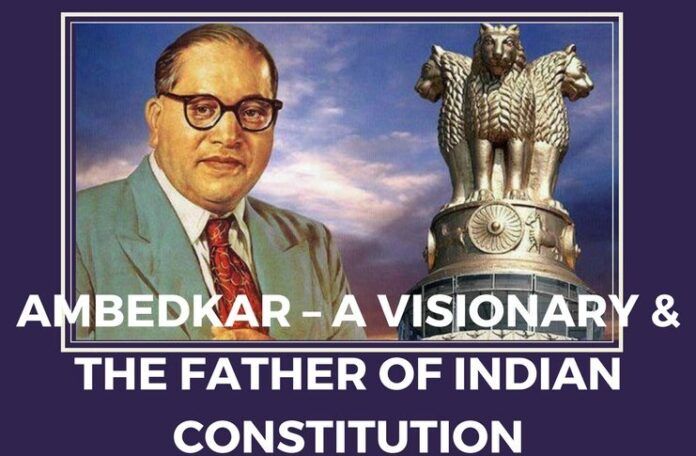
Remembering Dr. Ambedkar on his Birth Anniversary
Very often we listen to the Gandhi’s stories in South Africa one such was when he was thrown out of train just because he was colored, we proudly say that moment changed the history and we got independence. But no one discusses such incidents happening with in our country. Yes, indeed it happens to one boy which changed the history of our country.
Just think how that boy’s little heart would have felt? And the little boy was none other than Father of our constitution Dr B.R.Ambedkar.
“When the boy was waiting in the railway station for his father, the station master came and asked for the tickets and enquired about why they are standing here. As usual among Hindus in those days, the station master asked which caste they belong to, the boy without any hesitation said Mahars. (Mahar is one of the communities which are treated as untouchables in the Bombay province) he was stunned and as soon he heard the reply he went back to his room. The station master returned back and asked why they are still the in the station. There are many bullock carts they can hire one and go home, the boy replied to station master that, “we were Mahars had gone round among the cart men and not one of them was prepared to suffer being polluted and to demean himself carrying passengers of the untouchable classes. We were prepared to pay double the fare but we found that money did not work”.
Just think how that boy’s little heart would have felt? And the little boy was none other than Father of our constitution Dr B.R.Ambedkar this was only a small story how he got humiliated and discriminated by the upper caste Hindus. However this humiliation didn’t stop him, it only made him stronger.
Ambedkar was born at Mhow in Indore on April 14, 1891. He studied at the government school but faced unbearable insults because of his low caste. He was not allowed to sit inside the class. Even if he needed to drink water, somebody from a higher caste would pour water from a height so that the boy would not touch either the water or vessel. This kind of discrimination has not stopped him from studying. He continued his studies. He obtained two doctorates, one from Columbia University in 1917 and the other from the London School of Economics for his thesis “The Problem of the Rupee—Its Origin and Its Solution” in 1923. He also pursued a course in Law and became a Barrister-at-Law at Gray’s Inn in 1920.
He added the concept of social justice to our constitution.
It was very difficult to find any another person from the marginalized sections of any society reaching very high as Ambedkar. In my sense, he was a great RUSHI, like Vishwamitra who created Trishenku Swarga. Ambedkar has created a new world for marginalized in our country. And dismantled the caste discrimination which existed from ages. He was a global icon for marginalized. He was not only a leader of marginalized; he was a reformer, scholar, and economist. RBI was formed only with his recommendations, he was the champion of Human rights in our country, Hindu code bill was formed with his suggestions which brought change in lives of women in our country and stopped the male chauvinism.
He added the concept of social justice to our constitution. Granville Austin described Indian constitution as ‘first and foremost social document’. He has given a broader concept for Democracy, that it is not merely a political setup but is a society for bringing just and equality. Ambedkar is still relevant today because of discrimination in the name of caste, creed, sex still exists in our society.
I shall end this with Ambedkar’s concluding speech to the Constituent Assembly: On 26th January 1950, we are going to enter a life of contradictions. In politics, we will have equality and in social and economic life we will have inequality. In politics, we will be recognizing the principle of one man one vote and one vote one value. In our social and economic life, we shall, by reason of our social and economic structure, continue to deny the principle of one man one value. How long shall we continue to live this life of contradictions? How long shall we continue to deny equality in our social and economic life? If we continue to deny it for long, we will do so only by putting our political democracy in peril.
Note:
1. The views expressed here are those of the author and do not necessarily represent or reflect the views of PGurus.
- Glimpse Into The 25 Years Of India Israel Relations - July 7, 2017
- Ambedkar – A visionary & the Father of Indian Constitution - April 15, 2017
- Terror Attacks In Pakistan: What It means To The Region - March 7, 2017








India may not have been as good and complete a democracy as it is, but for Dr. Ambedkar. He’s surely one of the legends who deserves to be remembered for his important contributions. We have surely not recognised him adequately.